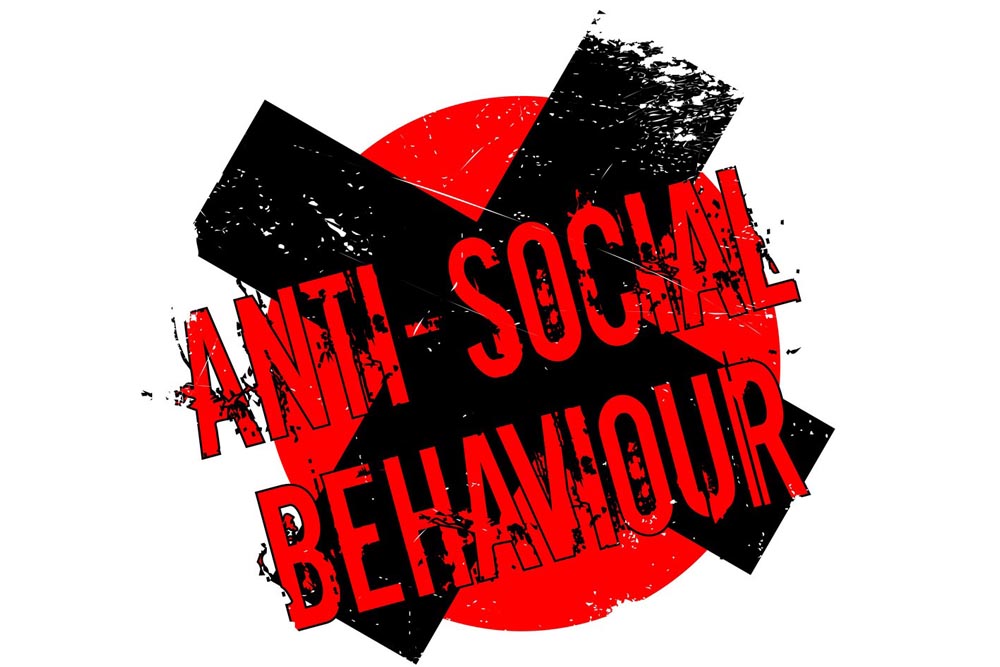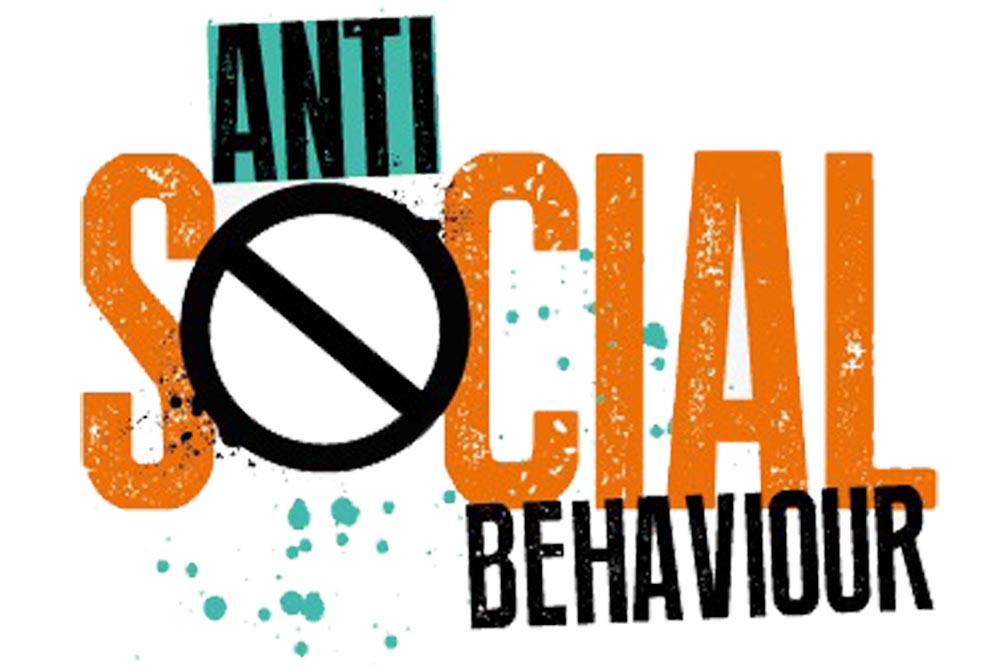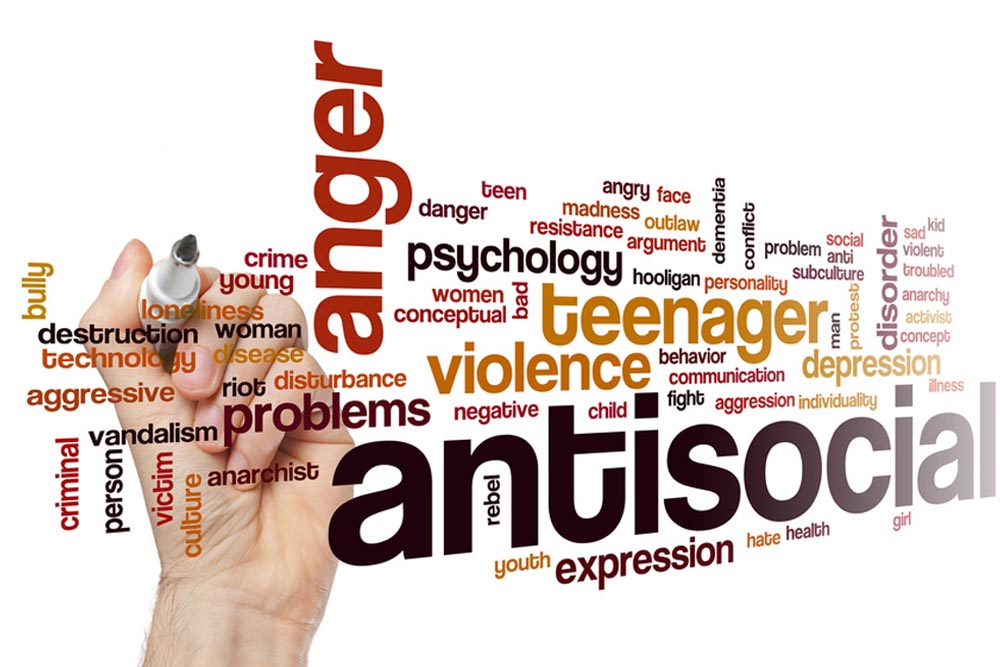Anti Social Behaviour
Anti-social behaviour can have a deep and lasting impact on local communities. That is why Cliveden Housing Management & Care engages and encourages all stakeholders, including the tenants and landlords, to eradicate unacceptable behaviour.



WHAT IS ANTISOCIAL BEHAVIOUR?
Antisocial behaviour is defined as ‘behaviour by a person which causes, or is likely to cause, harassment, alarm or distress to persons not of the same household as the person’. There are three main categories for antisocial behaviour, depending on how many people are affected:
- Personal antisocial behaviour is when a person targets a specific individual or group.
- Nuisance antisocial behaviour is when a person causes trouble, annoyance or suffering to a community.
- Environmental antisocial behaviour is when a person’s actions affect the wider environment, such as public spaces or buildings.
UNDER THESE MAIN HEADINGS ANTISOCIAL BEHAVIOUR FALLS INTO ONE OF 13 DIFFERENT TYPES:
- Vehicle abandoned:
This covers vehicles that appear to have been left by their owner, rather than stolen and abandoned. It includes scrap or ‘end of life’ vehicles and those damaged at the scene of a road traffic collision that have been abandoned and aren’t awaiting recovery.
- Vehicle nuisance or inappropriate use:
This relates to vehicles being used in acts such as street cruising (driving up and down the street causing annoyance and bothering other road users), vehicle convoys and riding or driving on land other than a road. It also covers the misuse of go-peds, motorised skateboards and electric-propelled cycles, and the unlicensed dealing of vehicles where a person has two or more vehicles on the same road within 500 metres of each other.
- Rowdy or inconsiderate behaviour:
This refers to general nuisance behaviour in a public place or a place to which the public have access, such as private clubs. It does not include domestic-related behaviour, harassment or public disorder which should be reported as crimes.
- Rowdy or nuisance neighbours:
This covers any rowdy behaviour or general nuisance caused by neighbours, including boundary and parking disputes. It also covers noise nuisance from parties or playing loud music.
- Littering or drugs paraphernalia:
This includes fly posting and discarding litter, rubbish or drugs paraphernalia in any public place.
- Animal problems:
This covers any situation where animals are creating a nuisance or people’s behaviour associated with the use of animals is deemed as antisocial. It includes uncontrolled animals, stray dogs, barking, fouling and intimidation by an animal.
- Trespassing:
This is any situation in which people have entered land, water or premises without lawful authority or permission. It ranges from taking an unauthorised shortcut through a garden to setting up unauthorised campsites.
- Nuisance calls:
This covers any type of communication by phone that causes anxiety and annoyance, including silent calls and intrusive ‘cold calling’ from businesses. It does not cover indecent, threatening or offensive behaviour which should be reported as crimes.
- Street drinking:
This relates to unlicensed drinking in public spaces, where the behaviour of the persons involved is deemed as antisocial. It also covers unplanned and spontaneous parties which encroach on the street.
- Prostitution-related activity:
This relates to any activity involving prostitution such as loitering, displaying cards or promoting prostitution. It may also refer to activities in and around a brothel that impact on local residents. It does not include ‘kerb-crawling’ which should be reported as a crime.
- Nuisance noise:
This relates to all incidents of noise nuisance that do not involve neighbours (see ‘Nuisance neighbours’ above).
- Begging:
This covers anyone begging or asking for charitable donations in a public place, or encouraging a child to do so, without a license. Unlicensed ticket sellers at or near public transport hubs may also fall into this category.
- Misuse of fireworks:
This will include the inappropriate use of fireworks, the unlawful sale or possession of fireworks and noise created by fireworks.
HOW TO REPORT ANTI-SOCIAL BEHAVIOUR
The easiest method to report anti-social behavior is to send a request through our contact form. Remember to include your name and address so that we can identify you for our records. If the matter is urgent, please include your phone number. Also, ask for an anti-social behavior journal below. You can use it to keep a detailed record of the harassment and nuisance you experience, including the nature of the incidents and when they occurred, the record would be very helpful evidence for us to help you in solving the case.
MORE INFORMATION:
You can find out more information in anti-social behaviour guide. This guide covers:
- responding to nuisance and harassment
- what is and is not anti-social behaviour
- avoiding anti-social behaviour
- how to tackle anti-social behaviour
- what we will do when you report a problem
